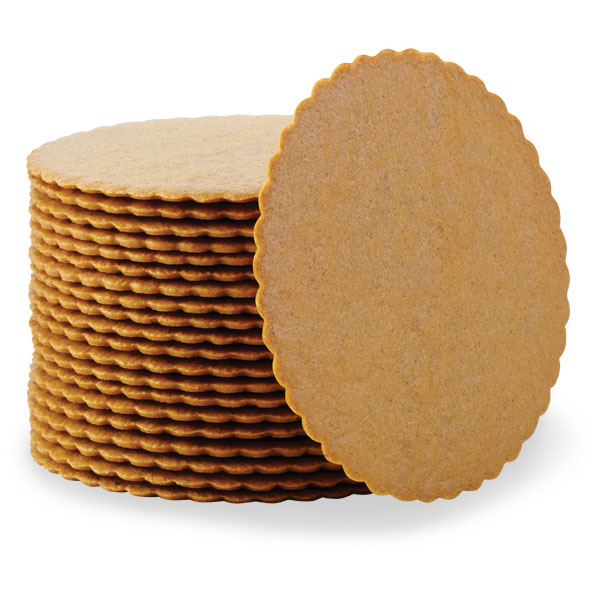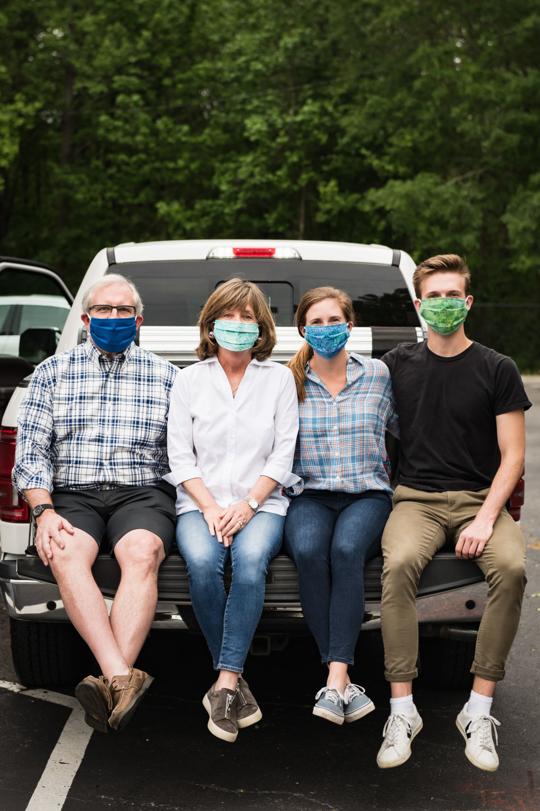
Moravian cookie makers hopeful that state symbol will attract more customers
Article Published by: greensboro.com
Making the Moravian cookie the official cookie of North Carolina is a no-brainer from a marketing, financial and feel-good perspective, according to local bakeries.
A bill that would make that happen cleared the N.C. House by a 115-0 vote Tuesday. It has been sent to the Senate Rules and Operations committee for consideration.
House Bill 394 has among its primary co-sponsors Reps. Donny Lambeth, R-Forsyth, Ashton Clemmons, D-Guilford, and Jon Hardister, R-Guilford.
The bill cites the heritage of the Moravian community and the cookies, as well as the economic and tourism impact of Moravian cookie sales in the Winston-Salem area since the 1950s.
“Without a doubt, (the bill) makes perfect sense given the Moravian cookie found a home in Old Salem when the Moravians settled here in 1766,” said Frank Vagnone, president and chief executive of Old Salem Museum and Gardens.
Bill sponsors said “it is fitting to recognize the positive impact the Moravians have had on the state’s culture.”
“It is a very distinctly North Carolina product, so by embracing the Moravian cookie as a state symbol, you are a unique part of North Carolina’s history,” Vagnone said.
Winkler Bakery, the most-visited site in Old Salem’s historic district, has made baked goods on site since 1800.
“We sell 350,000 Moravian cookies each year made in Winkler Bakery,” Vagnone said. “A good number of visitors buy our cookies on their way home.
“The proceeds go right back to the state as a means of funding our educational mission.”
‘Timeless product’
Scott Livengood, owner and chief executive of Dewey’s Bakery, thanked the state House “for their recognition of this timeless product and the countless contributions of the Moravians to the cultural fabric of our state.”
“Moravian baking traditions have been an extraordinary part of North Carolina’s culture for many years, and an integral part of our bakery offerings since we first opened in 1930 in downtown Winston-Salem,” he said.
Livengood said Dewey’s “has an enormous amount of pride in our connection to our state and the Moravian cookie legacy. “
“We already refer to Winston-Salem and North Carolina on the back of our Moravian Cookie packaging that’s distributed across the country.
“If the bill passes, we’ll certainly plan to incorporate that in our marketing efforts on social media, on our website and in our retail stores,” Livengood said.
Bakeries
Mona Hanes-Templin, president of Mrs. Hanes’ Home-Made Moravian Cookies in Davidson County, said it “certainly would be an honor.”
Mrs. Hanes is a family-owned bakery for more than 55 years using a centuries-old secret cookie recipe. Her family is of the Moravian faith as well.
The bakery makes about 10 million Moravian cookies a year and ships to all 50 states and more than 30 countries.
“It would be quite the talking point to customers and students on field trips to tell them they are holding in their hands the state cookie, and that they can visit where the official state cookie is made.”
If the state cookie symbol becomes law, Hanes said her bakery would be quick to put the designation into its marketing, brochures and on its Facebook page.
“We get featured in magazines occasionally, so selling the state cookie could help generate more publicity,” Hanes-Templin said.
Flavor
The sponsors of HB 394 may have generated a little bit of controversy in the bill’s language by not specifying a particular flavor for the state cookie designation.
The bill’s language does cite the cookies made with molasses, allspice and ginger.
The lack of distinction matters to Moravian cookie devotees in terms of flavor and thickness of the cookie.
For example, the Winston-Salem Journal received several irate responses from readers when it used a photograph of a Moravian sugar cookie instead of a ginger cookie in its initial report on the state cookie possibility.
Vagnone said the traditional Moravian cookie it makes is thicker, much like the original cookie that was referred to as cake.
“The thin cookie snap reference is a relatively modern description of the cake,” Vagnone said.
“The early versions of the Moravian cookie were thick and harder from the molasses, with people dunking them into their coffee or beer to soften them up.”
Vagnone said that Winkler Bakery is contemplating making changes to its packaging to reflect the traditional heritage of the delicacies being referred to as cake with cookies listed underneath “for what customers are looking for.”
“There’s plenty of room for all varieties of Moravian cookies to benefit from a state cookie designation,” Vagnone said.
Livengood said Dewey’s supports the state designation and it should include Moravian cookies “as an inclusive style of cookie, rather than just one flavor.”
“It transcends one flavor. Although ginger is the oldest Moravian Cookie recipe, other flavors like sugar and lemon have been favorites in the community for many years.
“At Dewey’s Bakery, we believe that Moravian Cookies are all about larger-than-life flavor in an impossibly thin, crisp cookie,” he said. “They should always be crafted with care using the very best ingredients.”
Hanes-Templin said her grandmother was the first to bake a thin sugar Moravian cookie in the 1940s.
“Mrs. Hanes would share the honor to all of our cookie varieties, though we believe the molasses/ginger is the most traditional cookie,” Hanes-Templin said.
About Scott Livengood
Scott Livengood is the owner and CEO of Dewey’s Bakery, Inc., a commercial wholesale bakery with a respected national brand of ultra premium cookies and crackers.
Previously, Scott worked at Krispy Kreme Doughnuts for 27 years, starting as a trainee in 1977. He was appointed President of the company in 1992, then CEO and Chairman of the Board.
Scott has served on numerous boards including the Carter Center, the Calloway School of Business and the Babcock School of Management, Habitat for Humanity of Forsyth County, and the Winston-Salem Chamber of Commerce.
He started a new business, StoryWork International, in 2016 with Richard Stone. The signature achievement to date is LivingStories, a story-based program for improved patient experiences and outcomes in partnership with Novant Health.




